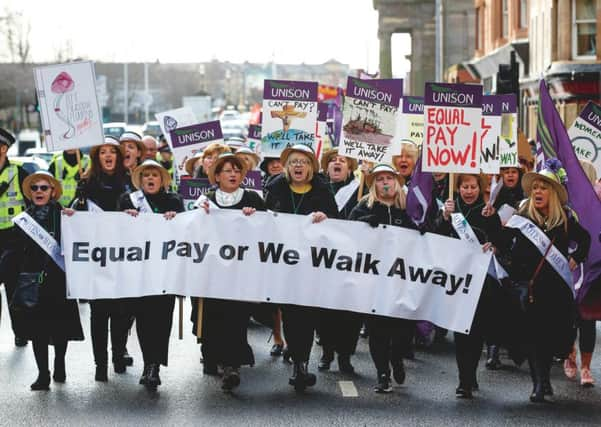Leader: Glasgow's losing battle on equal pay


This matter should have been resolved more than ten years ago when the problem was exposed. But the pay and grading scheme the council chose to introduce in an attempt to achieve equality – a scheme different to the one implemented by all other Scottish authorities – perpetuated and even deepened the disparity between women and men.
With the council deciding not to challenge a court decision which ruled against this pay grading scheme, and to negotiate a settlement instead, justice could at last be done, although there remains potential for dispute and delay.
Advertisement
Hide AdAdvertisement
Hide AdThe danger is, however, that the cost of putting right this historic wrong will be seen as a threat to jobs or services. This suggestion must be banished, because it adds insult to those who have struggled through the years on reduced wages. They have paid a heavy price and must not be forced to carry a burden of guilt now for daring to ask for what they are owed. Instead, the council – which has benefited from years of getting work done on the cheap – has to find a way of meeting its obligations which does not involve putting a further section of society to disadvantage.
It is little short of a disgrace that Glasgow City Council neglected its responsibility to fix this problem in 2006, and even though the pay gap is to be closed, that is not the end of the matter. As well as salary discrepancies, there are also long-standing issues over working conditions for women, who are often at the front line of core public services such as social care. If women have been undervalued in their pay, should it be a surprise to find that this attitude is reflected across their terms of employment?
Gender inequality remains a fundamental problem for society. It is depressing to find such a crude example has yet to be resolved in 2018. This time, there must be no compromise.